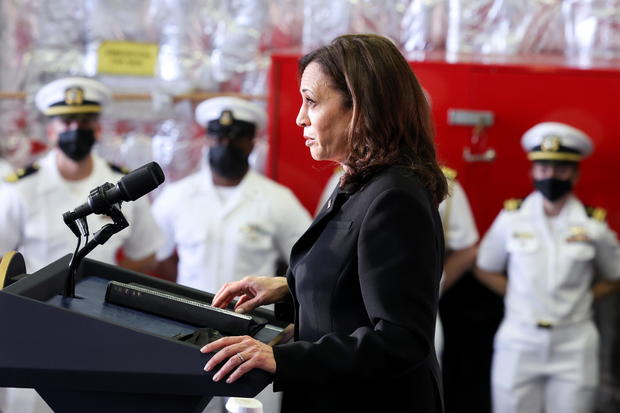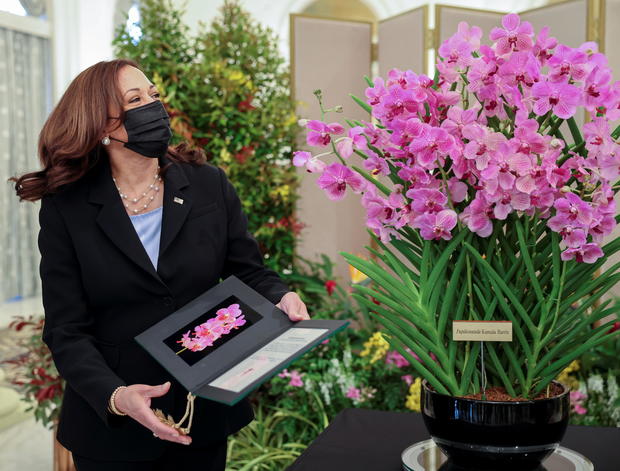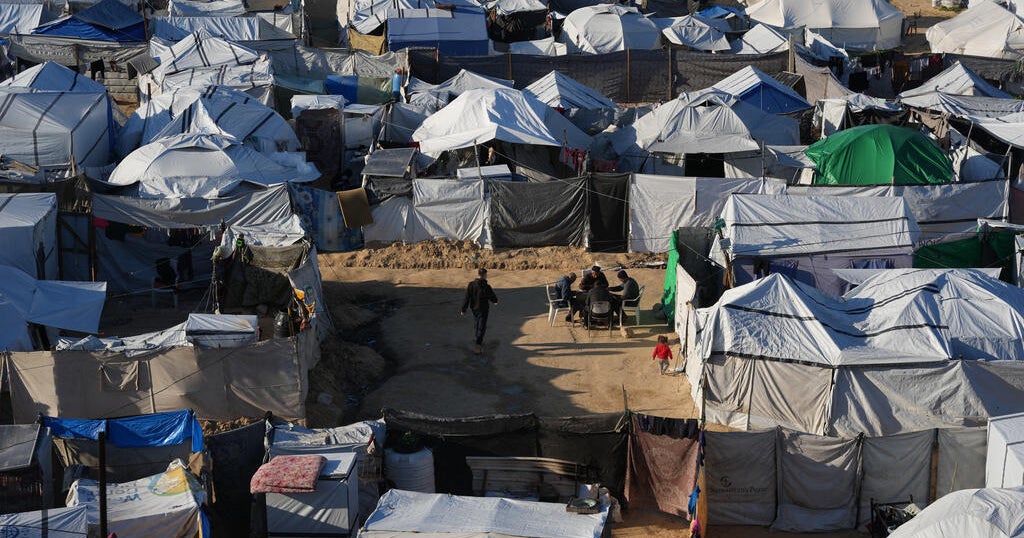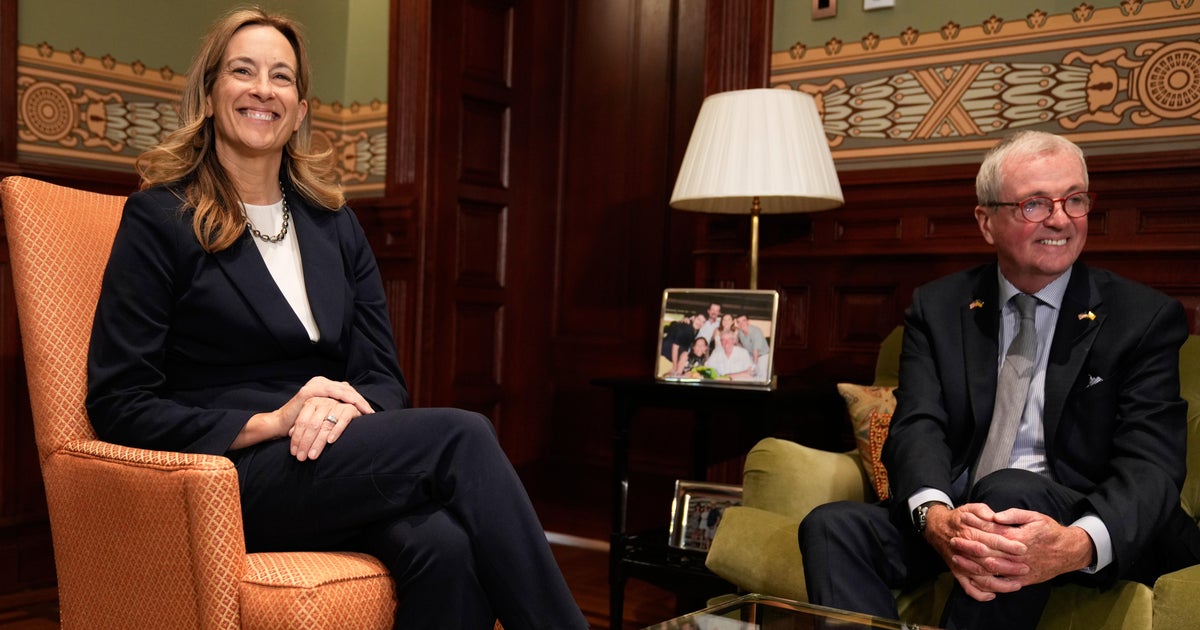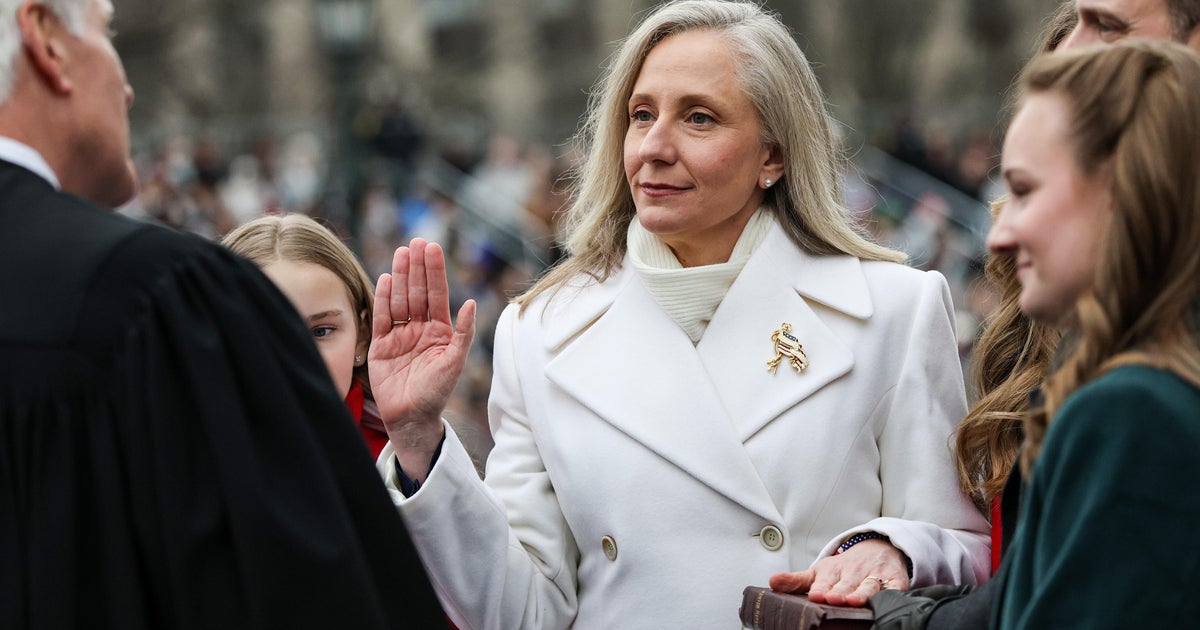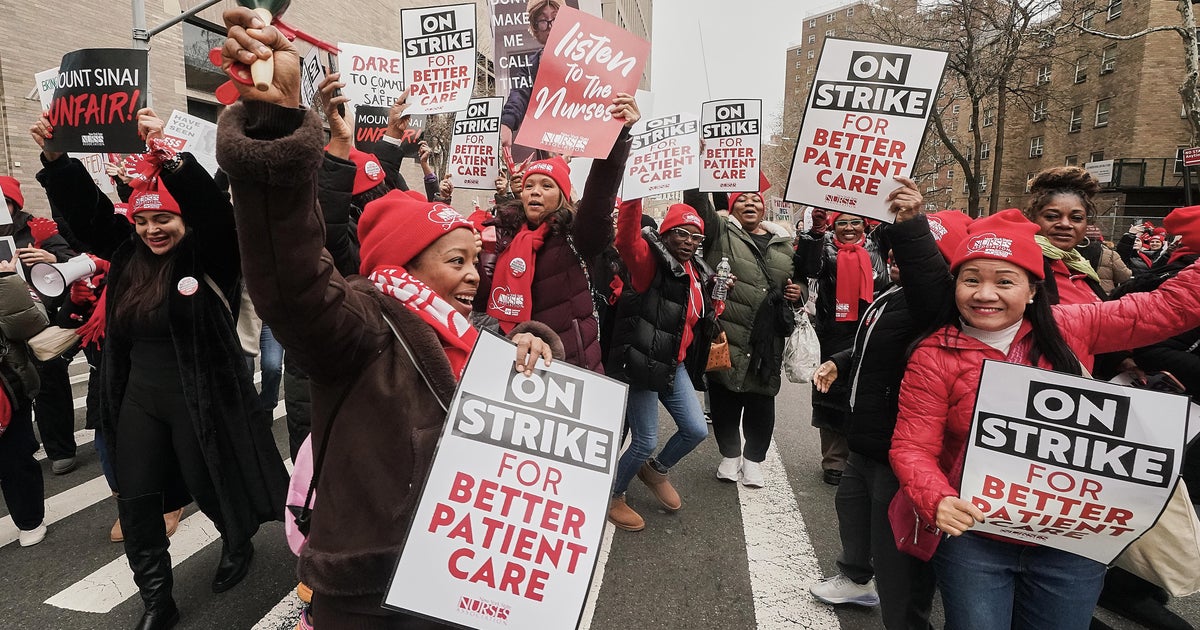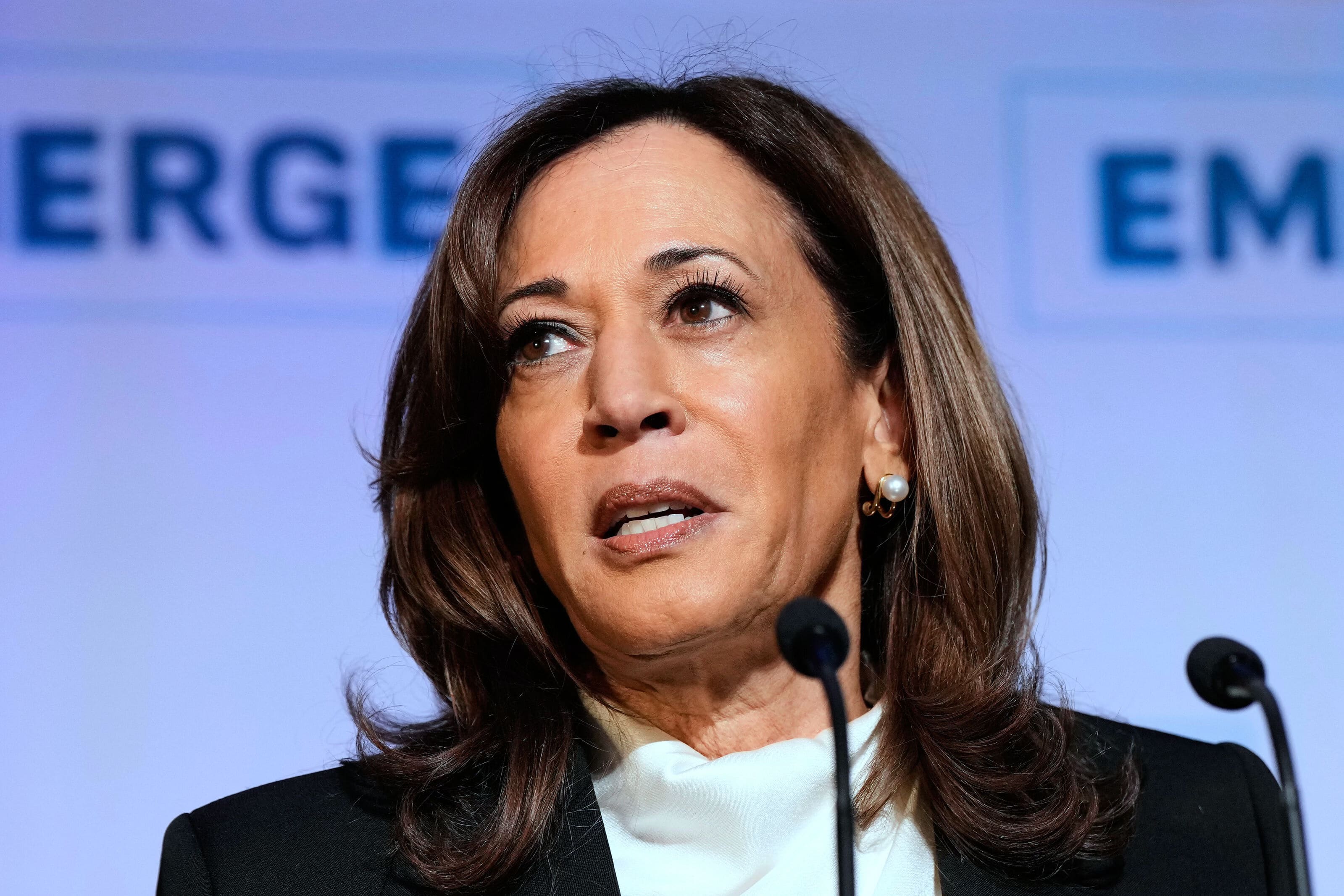Afghanistan withdrawal overshadows Kamala Harris' first Asia trip as vice president
Hong Kong — Kamala Harris' first trip to Asia as vice president was meant to signal the United States' staunch commitment to partners in the Indo-Pacific region in the face of a rising China. Instead, Harris' three-day stop in Singapore quickly turned into a platform for journalists to question her on the U.S.' reliability as a security partner as Washington's chaotic withdrawal from Afghanistan continued.
In prepared remarks to rolling cameras, both Harris and Singapore's Prime Minister Lee Hsien Loong focused on cooperation on COVID prevention and regional stability, but in an open question and answer session that followed, reporters focused on Afghanistan, not the intended themes of Harris' trip.
The Singaporean leader revealed that his government had offered Washington a tanker transport plane in support of efforts to evacuate thousands of Americans and their allies from Afghanistan.
Later on Monday, Harris met U.S. sailors on the USS Tulsa warship, docked at Singapore's Changi Naval Base. She said she knew they would all be watching with concern the scenes unfolding in Kabul, where their fellow service members were still busy trying to evacuate thousands of U.S. nationals, their dependants and vulnerable Afghans.
"We are grateful to those men and women in uniform, and the embassy staff on the ground for bringing safety to Americans and to the Afghans who work side by side with us, and to other Afghans at risk," Harris said aboard the Tulsa. "They're doing this mission in an incredibly challenging and dangerous environment. And the president and I are thankful for their service, and as I know you all know, we send them our thoughts and our prayers from afar, and close up, we thank you every day for the work that you do."
Harris' visit to Singapore — a close U.S. ally and key base for the American Navy in Southeast Asia — follows trips by Secretary of State Antony Blinken and Secretary of Defense Lloyd Austin to Asia over the past month. The Biden administration has sought to reassure Asian allies nervous about China's assertive policies in the region, but those efforts have been complicated by the mounting questions over the planning and execution of the long-expected withdrawal from Afghanistan.
"The reason I am here is because the US is a global leader, and we take that role seriously," asserted Harris on Monday. She stressed the U.S.' "enduring engagement" in Asia and hit on the Biden administration's previous talking points about an "open and free" Indo-Pacific and "freedom of navigation" in the South China Sea.
Beijing claims nearly all of the South China Sea as its territory. Several countries in Southeast Asia dispute China's expansive claims over islands, shoals and reefs in the sea, and resources below the seabed.
Harris' trip to Asia, which will see her travel to Vietnam on Tuesday after her time in Singapore, was intended to push back against China's growing influence in the region, politically and economically, across Southeast Asia. On Tuesday she is scheduled to deliver a speech detailing the White House's policy for the entire Indo-Pacific region.
Reporters' preoccupation with the Afghan withdrawal on Monday overshadowed a series of new U.S.-Singapore agreements unveiled to coincide with the vice-president's arrival. Accords were reached for the U.S. and Singapore to conduct more tracing and research on COVID variants and treatments; to share more information to fight cyber threats; and to develop new clean energy projects to fight climate change under a so-called U.S.-Singapore Climate Partnership. There were also pledges for closer cooperation on trade, defense and space exploration.
"I'm happy that we are embarking on new areas of partnership. We concluded three agreements between our cyber, defense and finance agencies," Singapore's prime minister said.
Vice President Harris' official schedule began on Monday after she landed in Singapore on Air Force Two the previous day.
Prime Minister Lee Hsien Loong welcomed her at the presidential palace. A marching band played the Star Spangled Banner and Lee gifted Harris with a new hybrid orchid species named in her honor — a Singapore tradition for high-level guests known as "orchid diplomacy." Previous orchid recipients include Princess Diana, Michelle Obama and Nelson Mandela.
The second and final leg of Harris' Asia trip begins in earnest on Wednesday in Vietnam, where the South China Sea territorial issues loom just off the coast. Vietnam and China have been engaged in a long-running dispute over a small group of islands called the Spratly Islands.
China's foreign ministry, in a regular daily press conference on Monday, reacted coolly to Harris' trip, while China's nationalistic Global Times tabloid published a strident editorial, with a warning to Beijing's neighbors.
"China and countries including Vietnam have maritime territorial disputes," wrote the Global Times. "Those countries want to utilize the power of the U.S. to increase their bargaining chips when facing China. To some extent, such a situation is hard to avoid. But they need to be very careful when doing so."

